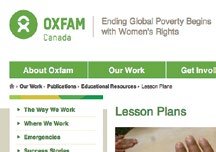Share this page
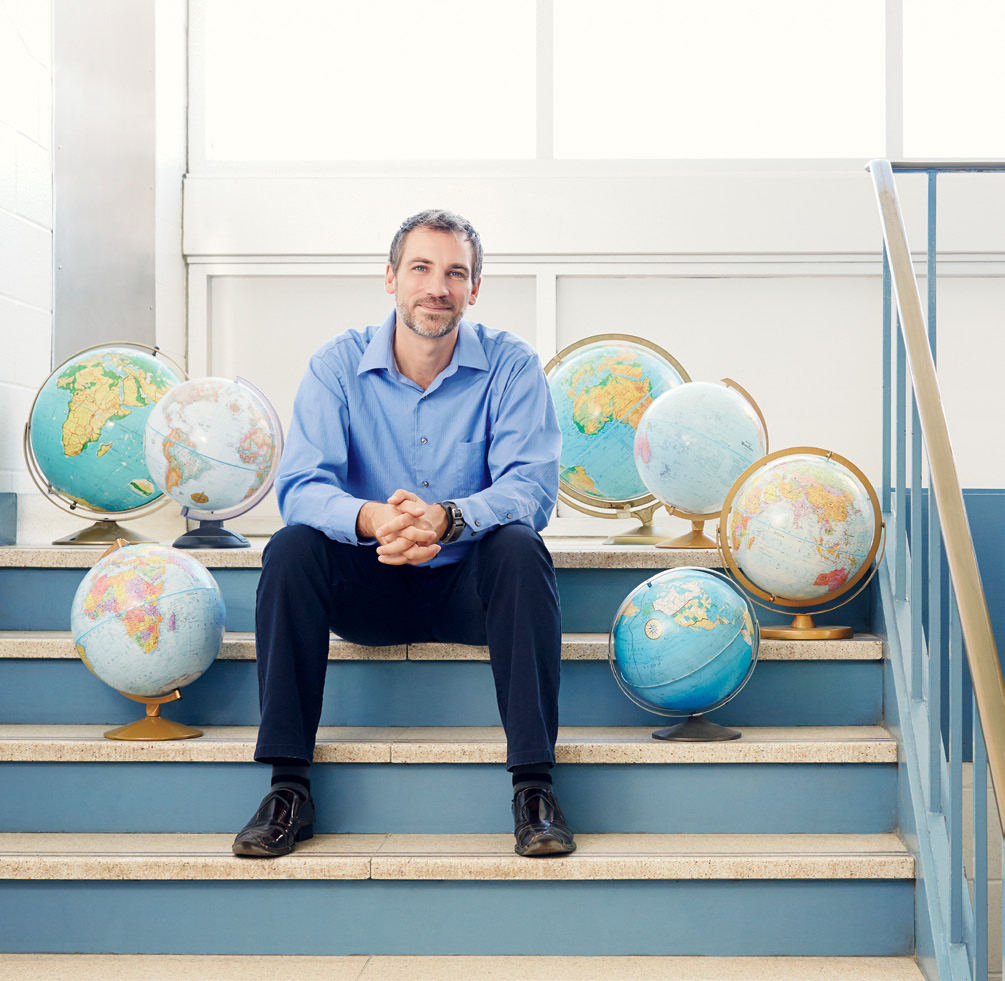
Brent Robillard, OCT, is a man on a mission who’s taking his students on an international adventure they won’t soon forget.
By Trish Snyder
Photos: Jaime Hogge
Today we’re going to see what it’s like to live in a developing country,” Brent Robillard, OCT, announces to his Grade 10 civics (French) class at Brockville’s Thousand Islands SS. He hands out photocopied game cards and runs through the rules: pick a scenario, then gain or lose food. Whoever finishes with the most provisions wins.
Students cluster in groups and take turns reading The Survivor Game scenarios they’ve selected, created by the Canadian Hunger Foundation. In one case, a young man must choose between having to support the family farm or abandoning it so he can attend school, land a better job and support the household. Other cards describe a family that loses all their crops due to extreme weather, while another makes the difficult decision to trade life-sustaining nourishment for life-saving medicine.
“Does everyone have the same amount of food?” asks Robillard when the activity is over. Cue an outburst of laughter: one student ended up with two cards while another stockpiled 18. “We can laugh because it’s a game,” the teacher says. “But what do you think happens in the real world when enough people get angry because they’re trying to feed their family and they can’t?” War, says one student quietly. Terrorism, says another. “Who thinks this is fair?” Robillard asks. No one raises a hand.
Some of these adolescents have never ventured west of Kingston, but Robillard is expanding their view of the world using real-life experiences and simulations. This civics class is part of the school’s unique International Studies Programme (ISP), which opens students’ eyes to global issues, inspires them to make a difference in the world and invites them on a humanitarian mission to Central America. It’s a program that didn’t exist before Robillard and his wife, Caroline Bergeron, OCT, developed it from scratch and pitched it to the Upper Canada DSB in 2004. Passionate about human rights, the well-travelled pair envisioned a robust four-year extended French program that would broaden minds and tempt young people to stick with languages. “Some schools specialize in drama or health and wellness,” says Robillard. “We thought this would be a great way to graduate a thinking student.”
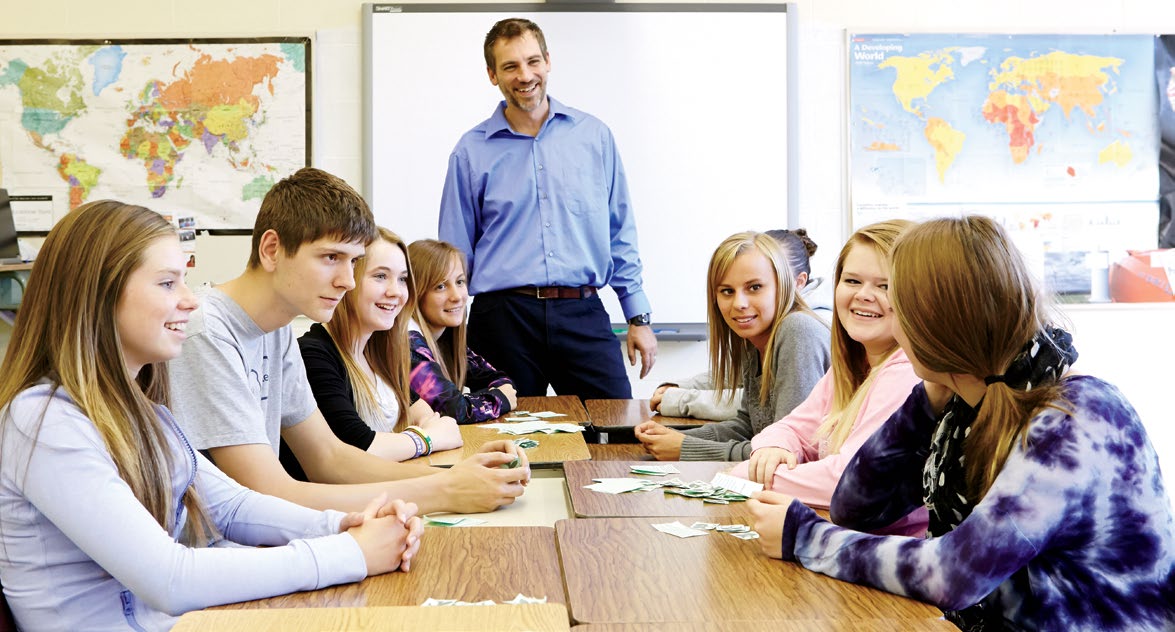
Every time principal Donald Lewis, OCT, overhears a debate in Robillard’s room, he’s reminded why Robi, as his students call him, won the 2010–11 Premier’s Award for Teacher of the Year. “Brent understands that when students realize that what they’re learning is actually relevant, they buy in.”
The 8-credit ISP embeds specialized education into a high school diploma. Bergeron teaches the program’s four French-language credits; Robillard covers Canadian history, international aid and development, as well as half-courses in careers and civics — all in French — plus Spanish. “Learning another language is the first step toward learning about the world and meeting another culture on common ground,” Robillard says. Languages are also useful in the real world — for instance, when the group goes to Nicaragua on a humanitarian mission, their hosts speak only French or Spanish. This helps keep the morning’s Spanish class on task; it doesn’t hurt that Robi spins verbs and vocabulary into a rousing game of Spanish Jeopardy on the Smart Board.
He pulls global issues to the surface, so recurring themes pulse through every year of high school for students in the ISP. In Grade 10 Canadian history, Robillard breaks down concepts like multiculturalism, discussing everything from racism in Canada’s early immigration policies (such as the Chinese head tax) to today’s world-class refugee policy. Within the interdisciplinary studies curriculum, the international aid course is embroidered with strands of economics, geography and sociology. Robillard recalls students expressing outrage when they came across the discrepancy between what the UN estimated it would cost to eradicate poverty (0.7% of GNI) versus the actual amounts countries spend (Canada, 0.32%; United States, 0.19%). “I teach that being an international citizen is about being aware,” says Robillard. “My role is to bring global issues into the room, so that my students have a forum for discussion.”
From awareness springs action. Instead of writing a test at the end of Grade 10 civics, students must contribute to the community. Some focus on campaigns to relieve poverty, support women’s rights or end impaired driving. One boy learned that Haitians were so desperate for food after the 2010 earthquake that they were surviving on salted clay. His clay-cake sale attracted swarms of curious students, raising visceral awareness of hunger and a few dollars for the Red Cross.
More good deeds are organized by the Humanitarian Educational Leadership Programme (HELP), a school club supervised by Robillard and Bergeron. An upcoming coin drive is on the agenda at a lunch meeting where two girls are trying to enlist volunteers to mount posters and collect donations. (They eventually raised over $500.) Each month there’s a new fundraiser that engages the community to support groups like World Vision and Free the Children — everything from a 5K fun run to a 24-hour fast.
Seniors head to Nicaragua for the ISP’s culminating 15-day humanitarian mission. They live in homes that are half the size of a Canadian classroom, while they job-shadow their host moms and dads. They clear brush and plant trees on farms, and deliver supplies to children who work in the local dump. Families earn $9 a day, per student, for their hospitality — this is a windfall compared with the $2 average.
It’s not unusual that students break down during that first week. “They’re upset by what they see and experience: emaciated dogs, naked youngsters in the street, no cold water, no showers, sleeping on cots,” says Robillard. But when it’s time to return home, they don’t want to leave. “They come back feeling somewhat impotent and confused because they realize they’ve learned so much — how to laugh when you have nothing, how to have fun without video games — from the people they went to help. There’s no better way for students to understand how the world works than by living it.”
“Some of his students go on to study international development or human rights based on their experiences,” says principal Lewis. “For a teacher to make that kind of an impact, that’s huge.”
About as huge as coaxing teenagers to write 30,000-word novellas, which is what Robillard manages to do by running his Writer’s Craft course as a novel study. An award-winning poet and novelist (Drift, his most recent novel was published in 2011), he unravels the writing process into elements like plot, characterization, crisis, conflict and reversals. Before students sketch out a detailed storyline, for example, he gets them to think about the plot in short episodes — they practise by looking at chapter titles on a Lord of the Rings DVD.
Thanks to daily exercises scribbled in thick spiral notebooks, students will write more in Writer’s Craft than in any of their other courses combined. “I tell them by the end their book should look like they dropped it in the bathtub,” says Robillard. Borrowing ideas from author Natalie Goldberg, he’ll start with a phrase such as “I remember” and ask them to continue that thought by writing non-stop for five minutes. Then seven. Then nine. “When they read their work aloud, the reactions are amazing. Tears of laughter, spontaneous applause — we’ve heard it all,” he says.
Students feel safe sharing their work because they practise the delicate art of constructive criticism in small writers’ groups. Robillard prepares the class for peer review by explaining the needs of the various personalities involved: some want a no-nonsense message about what needs work in their writing; others need a more delicate approach. Students pick the personality type they most relate to, and the group responds with feedback delivered in an appropriate manner.
Like their teacher, Robillard’s students are becoming accustomed to seeing their work in print. One self-published her first novel and is working on a second. Many win short story contests. Just that morning, a Grade 11 student arrived clutching an acceptance letter from The Claremont Review, a serious international literary journal for young adults that accepts less than one per cent of submissions. Robillard is happy to play a part in these accomplishments but he gets just as much satisfaction when former students confess they still write in their notebooks, even if they never publish. “It makes you realize that they value the written word and that creative process.”
A few years ago, Robillard’s writing class turned some 19th-century newspaper clippings about shipwrecks in the St. Lawrence into Dive Brockville, a local dive compilation, including a log, illustrated by fellow teacher David Sheridan’s art students. The award-winning book went through three printings and sold enough copies to fund a public art sculpture. “Brent’s always enthusiastic, always pumped to find his students real-world experiences,” says Sheridan, OCT, and a past winner of a Prime Minister’s teaching award. “It’s difficult to find teachers who are willing to put in that extra 100 hours of work to enrich their curriculum. When you work with someone like that, you’re inspired to achieve higher goals yourself.”
For a budget-friendly experience that goes beyond sightseeing, consider “voluntouring.” Brent Robillard has completed five such missions with Voyages Tour Étudiant (VTE), which offers community-based homestay programs in Nicaragua, Guatemala, Ecuador, Costa Rica, Peru and Mexico. “Many student-oriented travel agencies partner with international organizations to offer humanitarian options, which often leads to higher costs,” says Robillard. “VTE works directly with local community groups and Canadian non-profit NGOs to provide affordable, authentic experiences.” For more info, visit bit.ly/16y3Kz2.
Want to introduce students to the world of international studies and global citizenship? Tap into Brent Robillard’s favourite websites for excellent (and free) classroom resources:
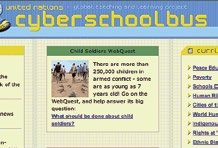
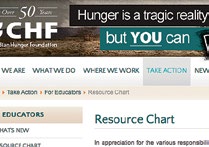
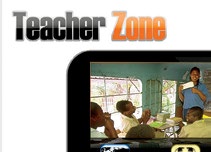

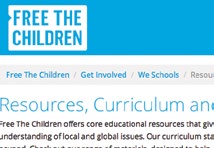
Oxfam Canada
